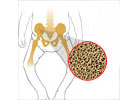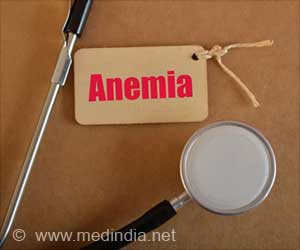In populations with increasing level of folate supplementation, evidence suggests no benefit from lowering of homocysteine for prevention of stroke.

Thus there is a direct association between elevated homocysteine levels and the increased risk of coronary heart disease. Studies have estimated that a reduction of 3 μmol/L in serum homocysteine would decrease risk of coronary heart disease by 18 percent and stroke by 24 percent after a mean follow-up of 7·3 years. However, this association was more pronounced in populations with low dietary folate consumption. In regions with established policies of population folate supplementation, no coronary benefits were observed from lowering of homocysteine.
Some studies have associated the MTHFR 677C→T polymorphism with raised homocysteine concentration and increased risk of stroke. MTHFR is a gene called methylenetetrahydrofolate reductase. It provides instructions for making an enzyme that plays an important role in a chemical reaction involving B-vitamin folates.
In order to investigate the potential modifying effect of folate status on the association between the MTHFR 677C→T variant and stroke risk, a collaboration of genetic studies including data for homocysteine concentration and stroke events was established. The finding of this genetic analysis was compared with a meta-analysis of randomised controlled trials of homocysteine-lowering treatments on stroke risk.
Researchers established genetic studies consisting of 237 datasets including 59,995 individuals with data for homocysteine and 20885 stroke events. On comparing the genetic findings with a meta-analysis of 13 randomised trials of homocysteine lowering treatments and stroke risk, the following results were found -
• The effect of the MTHFR 677C→T variant on homocysteine concentration was larger in low folate regions than in areas with folate fortification.
• In regions with no supplementation with folic acid, for eg; Asia, participants homozygous for the T allele had higher concentrations of homocysteine than did those homozygous for the C allele. The effect was reduced in studies undertaken in geographical regions with policies of folic acid fortification like America, Australia, and New Zealand.
• In regions without folic acid fortification, the odds of stroke was 1·68 for comparison of individuals with the TT genotype and those with the CC genotype. This increase in risk was substantially larger than that noted in regions with low folate intake and regions with mid folate intake or folate fortification.
Even though there is a strong evidence of an increased risk of stroke associated with the MTHFR 677C→T variant, reduction of homocysteine concentration might not necessarily reverse the risk of stroke in adult life. Such conclusions can be derived from randomised trials of interventions such as folic acid that reduce the concentration of homocysteine.
It is important to emphasis on few differences between the evidence obtained from randomised trials and genetic studies. Firstly, most trial evidence arose from settings in which policies of folic acid fortification were well in place. Secondly, genetic studies reflect lifetime exposure to the phenotype resulting from the genetic variant, since randomization to the allele variants occurs at conception. Third, the number of stroke events in trials is substantially lower than that included in the genetic analyses. Fourth, evidence from randomized trials is derived mainly from individuals with established vascular disease, whereas that from genetic studies is mainly population-based. Therefore, genetic evidence should be regarded only as an approximate guide to the risk reduction achieved by modification of homocysteine concentrations in randomised trials.
It should also be considered that MTHFR 677C→T, a genetic instrument used to evaluate the effects of homocysteine on stroke risk, has poor specificity and it can not be denied that the genetic effect of MTHFR could be because of some mechanism other than homocysteine. Finally, the effect seen in low folate regions could be due to selective reporting bias in the subtype of stroke reported in genetic case-control or cohort studies i.e if stroke subtype was differentially reported according to continent and was associated with MTHFR genotype, the observed signal could be inflated.
The researchers conclude ‘In regions with increasing levels or established policies of population folate supplementation, evidence from genetic studies and randomised trials is concordant in suggesting an absence of benefit from lowering of homocysteine for prevention of stroke. Further large-scale genetic studies of the association between MTHFR 677C→T and stroke in low folate settings are needed to distinguish effect modification by folate from small-study bias. If future randomised trials of homocysteine-lowering interventions for stroke prevention are undertaken, they should take place in regions with low folate consumption’.
Source: Holmes MV, et al. Effect modification by population dietary folate on the association between MTHFR genotype, homocysteine, and stroke risk: a meta-analysis of genetic studies and randomised trials. Lancet. 2011 Aug 13;378(9791):584-94. Epub 2011 Jul 29.
Source-Medindia















